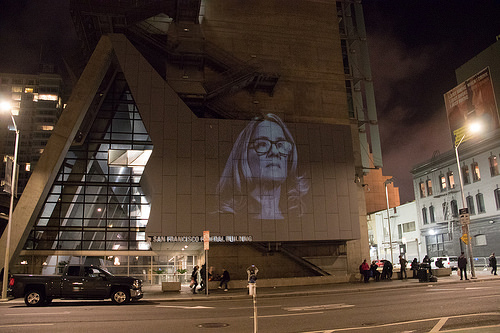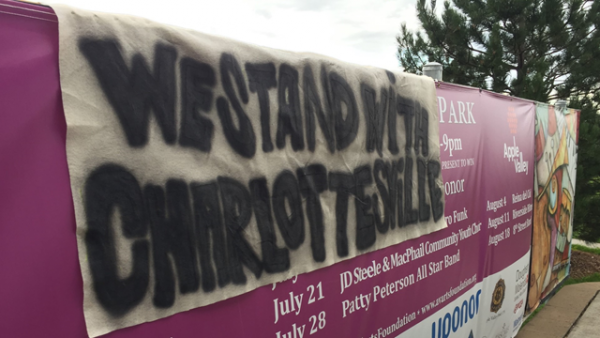Kavanaugh’s Confirmation Will Kill Disabled Sex Workers Like Me

A few years back, I woke up, looked at my arm, and thought I was in a nightmare. My arms were covered in rashes of tattoo-dark blood blisters so thick my skin looked burgundy-purple from a distance, and bruises, the flesh so swollen it looked like I had been in a car wreck. I had not done anything out of the ordinary, not been beaten up, not survived a new trauma.
It was the most obvious symptom of what would later be diagnosed as an immune disorder. The other symptoms were invisible but devastating—among them, noncancerous growths in both lungs large enough to require a surgical biopsy, and having to relearn how to breathe. My platelets dropped to levels that saw me restricted to cancer treatment wards, experimental medications and bed rest, and a never-ending hell of side effects. The only potential explanation was that this immune disorder could be causing my body to kill my platelets, removing my blood’s ability to clot.
Without platelets, you struggle to get enough oxygen. For a while, I even spent time on oxygen tanks. Without platelets, you’re a “bleeding risk.” You bruise. Sometimes you bleed spontaneously—internal bleeding, swollen limbs, bloody noses that soak towels and can’t be stopped outside a hospital. You can die from a bloody nose if it can’t be cauterized in time. The underlying immune disorder also removes my ability to respond to vaccines, rendering me vulnerable to preventable illnesses.
The good news is, with ongoing access to a medication derived from healthy people’s immunoglobulin, I can see the same long life as others. That’s a whole other discussion about ethics under capitalism in and of itself, because that immunoglobulin sure ain’t coming from rich people, is it?
The bad news is that without insurance this medication costs as much as some types of cancer treatment, and I’ll require it for the rest of my life. In the time between medication doses, my body chews through the donor immunoglobulin, as well as my own blood’s existing components.
In the scope of weeks, months at best, I go from healthy to on the verge of death, platelets dropping, sometimes by 2/3 in the scope of a day. In the course of diagnosis, I spent periods checking into the hospital every two weeks as my blood nosedived to a platelet level so dire that, at times, my doctors thought their machines had malfunctioned and were simply failing to count my blood’s components properly, because how the hell could I be alive otherwise? I was the youngest adult in the cancer wards, the mystery patient doctors came from other floors to see because my case was just THAT strange.
I was uninsurable prior to the Affordable Care Act, even without this diagnosis. My docs claimed I’d grow out of my irregular, heavy, unnervingly painful menstrual cycles, that they were nothing to be concerned about, yet the insurance companies claimed I had “an undiagnosed uterine disorder” and refused to cover me entirely. It turned out they were right about that disorder, ironically enough. After the endometriosis got bad enough to become disabling due to medical neglect, I finally got a diagnosis. I was disabled before my immune disorder ever happened.
Being able to get covered through the ACA was a turning point.
And if I had still been limping along without coverage when my immune system went into free fall, point-blank, I would be dead. Lack of coverage led to my deterioration and my medical inability to work to this day. But it would have led to my death if it had gone on just three years longer. Without full coverage that handled almost everything—blood tests sometimes daily, expensive medications, hospital stays, a dozen specialists, outside consults, extensive imaging, multiple surgeries, an ungodly amount of medications—I would have died during one of those blood drops, when I had 1/150th the minimum platelets of a healthy person.
I tell you this so you can understand how it’s all connected. How one denial, one interruption of coverage, one financial bad break, can cause a failure cascade that results in an individual’s life becoming a mire of sickness, struggle, medical neglect, and decay. For countless Americans, it leads to financial ruin.
For chronically ill and disabled people who do sex work in order to work around their conditions, doing criminalized, grey market, or informal labor without benefits means we often have no access to insurance without the ACA. Employer-based health insurance is now and has always been a leash on workers to keep us beholden to more powerful employers. The ACA was a first step away from that and empowered all workers, regardless of employment status. This is crucial in a “gig economy” of Uber drivers and independent contractors, people with standing not so different than my standing was as a stripper. A nation without the ACA is one in which many of us will die of illness and poverty.
This is the country that we are in danger of returning to if Brett Kavanaugh becomes the newest associate justice on our Supreme Court.


 For our readers who’d like to help, we put together a list of local organizations which stand against white supremacy and fundraisers for victims of the white nationalist violence at Charlottesville:
For our readers who’d like to help, we put together a list of local organizations which stand against white supremacy and fundraisers for victims of the white nationalist violence at Charlottesville: